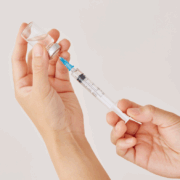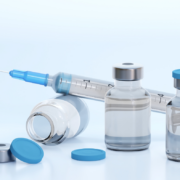Consumer Group Applauds FDA’s Action to Update Hormone Replacement Therapy Warnings
Media Contact: Lisa McDonald, Vice President of Communications, 202-207-2829
Washington, DC — The National Consumers League (NCL)’ s CEO attended the FDA announcement today that the agency will no longer require the “black box warning” on local estrogen products. NCL applauds the decision, which follows science and removes warnings that don’t follow the medical data for menopausal women and related conditions.
“For too long, outdated and misleading warnings have discouraged women from using very safe and effective local estrogen medications to relieve the often-debilitating symptoms of menopause,” said Sally Greenberg, CEO of the National Consumers League. “We have been asking for the removal of the black box warning for decades. The FDA’s action reflects current evidence and acknowledges the important role these local estrogen therapies can play in improving women’s health and quality of life.”
NCL is particularly pleased to see the removal of boxed warnings for local vaginal estrogen products — a step that will expand options for managing menopause-related conditions. At the same time, we urge consumers to be vigilant, seek the advice of their health care providers and look for transparency to ensure that they receive clear, evidence-based information about all treatment risks and benefits.
“Women deserve science-driven policies and access to care that reflects the best available research. The Administration listened to female patients, their doctors, providers, and women’s health researchers and for that we are grateful,” Greenberg concluded.
###
About the National Consumers League (NCL)
The National Consumers League, founded in 1899, is America’s pioneer consumer organization. Our mission is to protect and promote social and economic justice for consumers and workers in the United States and abroad. For more information, visit www.nclnet.org.

























